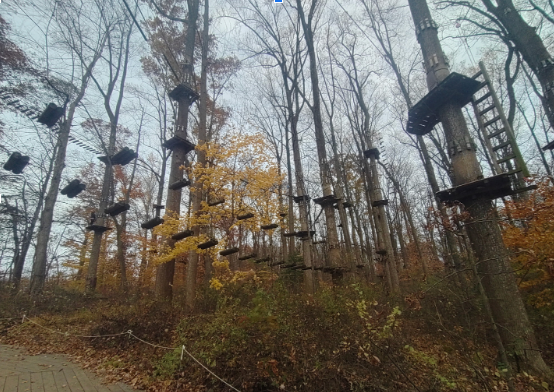Ms. X Will Always Be There to Help
- Penelope Morris
- Mar 31, 2023
- 2 min read
As Walls’ sports teams grow, one of the most important people in supporting the school’s athletes has continually been Ms. X.
Xavion Santiago — better known to the Walls community as Ms. X — is the school’s athletic trainer, or AT. You’ve probably seen a crowd of students outside her office during lunch time, looking to receive help with an injury, get advice on sports, or even just to chat. Maybe you’re a routine visitor, getting physical therapy on a weekly basis.
Ms. X decided that she wanted to be an athletic trainer early in life, after being in a car accident in high school. At the time, she played several sports, including soccer, volleyball, and basketball. During her recovery from the accident, she developed an interest in athletic training and decided that she would pursue it as a career, studying kinesiology and exercise science at Temple University and then High Point University.
She began at Walls in December 2017, and it is just one of many posts: she also works at Duke Ellington High School, Hardy Middle School, School Without Walls at Francis Stevens, Hyde-Addison Elementary School, and Stoddert Elementary School. Because DCPS only employs fourteen full-time ATs, each trainer has to cover multiple schools.
Ms. X also wears many hats as an AT. “Athletic trainers are responsible for both paperwork and game coverage,” she explained. She added that she is on duty for “home games for high schools but only playoffs and championships for elementary schools.” Outside of covering games, she also works with teams and individual athletes on injury prevention and to assist in recovery.
Ms. X explained that athletic trainers work in many other sectors, such as the military, professional sports, performing arts and even at companies like Amazon to ensure employees are carrying heavy loads safely.
For students interested in pursuing a career in athletic training, she recommends getting started early in order to determine if it is the right path — the majority of athletic trainers have at least a master’s degree, and the Board of Certification (BOC) exam is long and complex.
Reflecting on her experience as an AT, Ms. X said the most important part of helping an athlete recover after an injury is getting to know their personality. “Knowing which days are good days and which days are bad days — and knowing when I can use sarcasm — is important. When someone is having an off day I can recognize that,” she says.
On the athlete’s side, though, she says that self-advocacy goes a long way: “Advocating for your own education, advocating for yourself,” is hugely important, she said.







